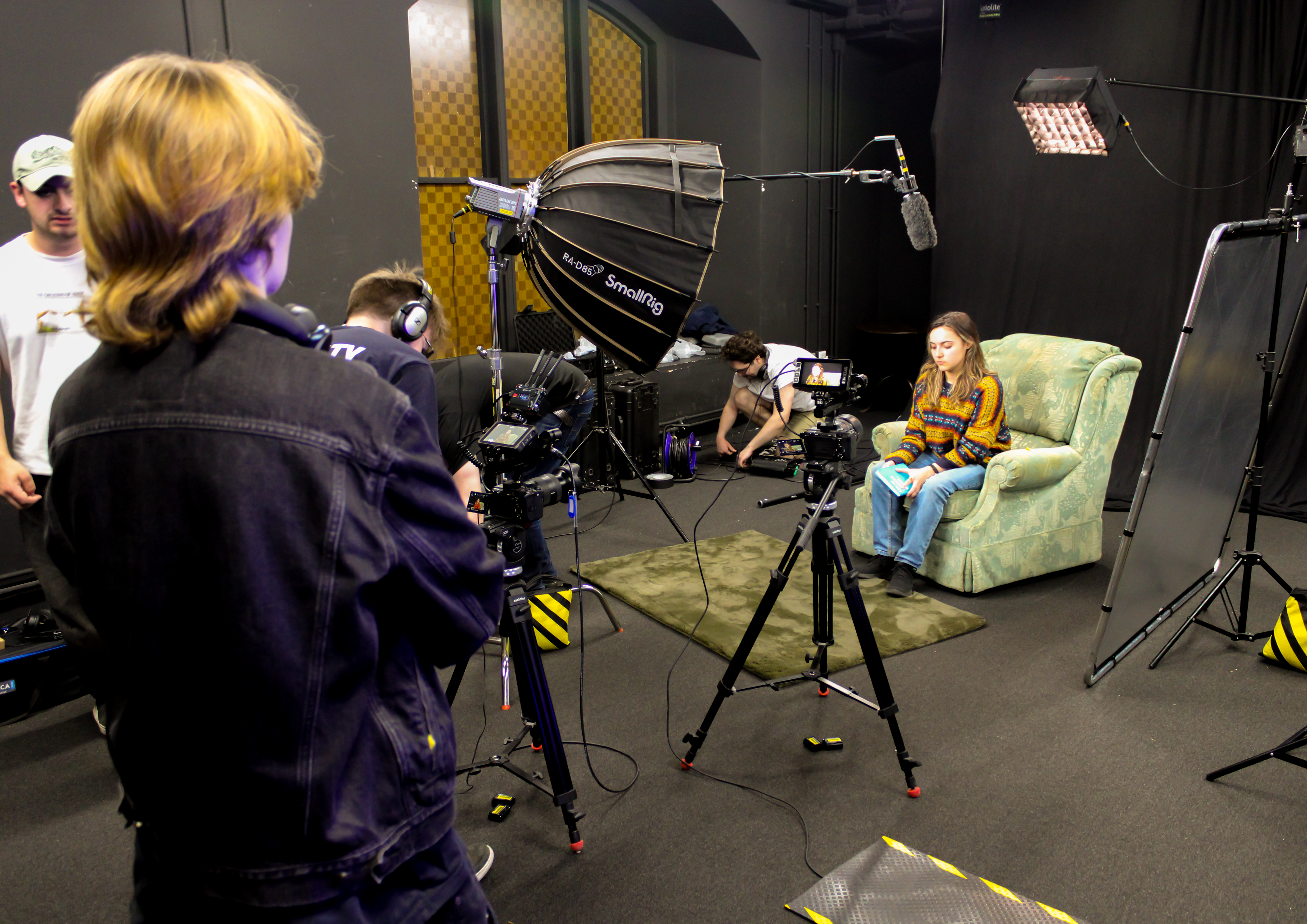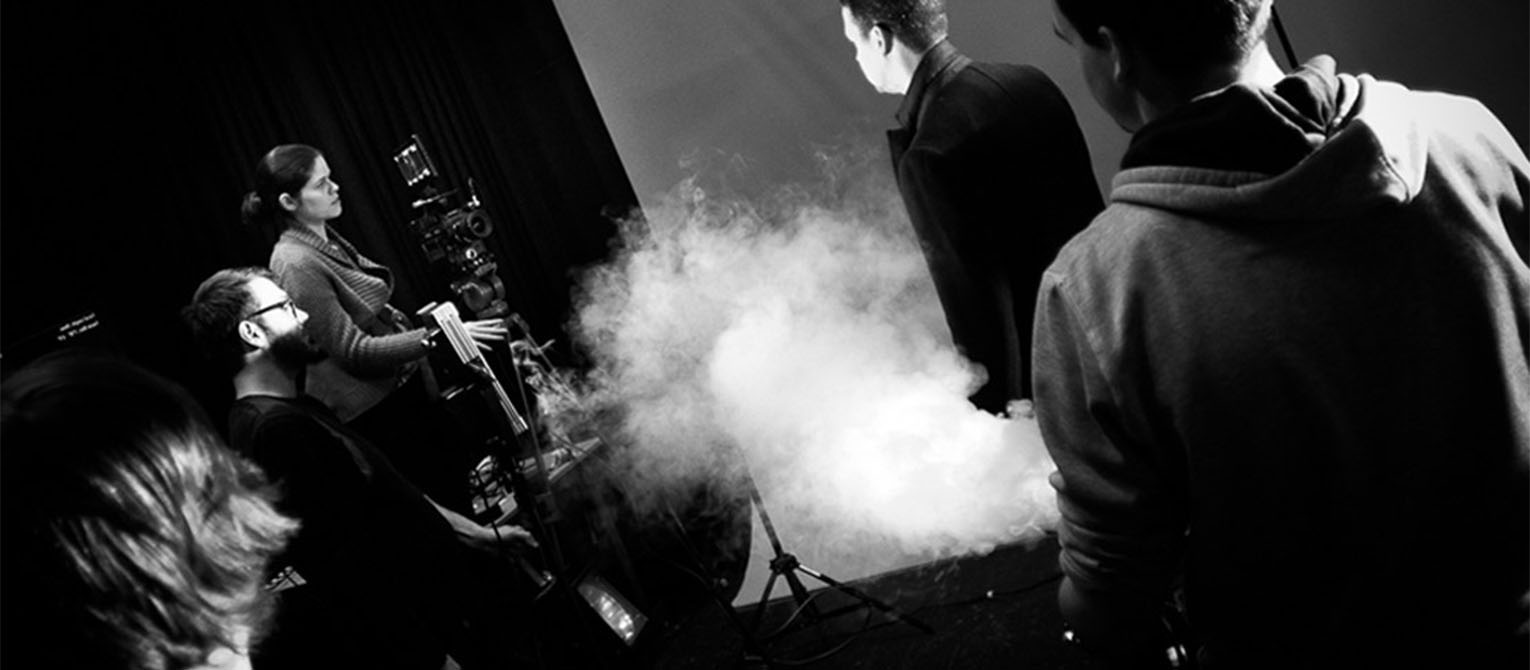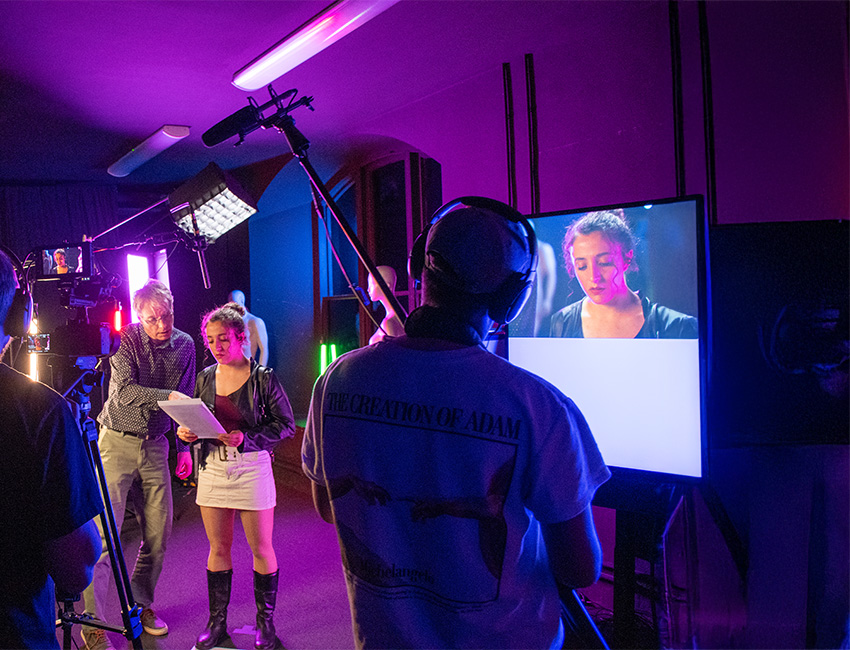At Worcester you’ll work with industry-standard equipment and cutting-edge facilities, whilst being taught by working screenwriters and filmmakers. Whether you're aiming to write, direct, produce, edit, or innovate, this course lays the groundwork for a dynamic and successful career.
of students were positive about the teaching on the course
of students said the staff make the subject engaging and explain things well
University of the Year finalist
Recognised for our graduate success, we’re shortlisted for University of the Year in the Times Higher Education Awards 2025.
Overview
By combining filmmaking with screenwriting you'll have the unique advantage to develop a dual skillset and deeper understanding of film, helping you to stand out with this highly valued skillset. The variety of modules provided within this joint honors degree, will also provide the opportunity to explore various roles and aspects of both filmmaking and screenwriting, helping you discover your niche and be able to tailor the degree to your interests. This course will enable you to graduate with a strong portfolio that stands out to future employers and clients, whilst gaining valuable, transferable skills which lead to a wide range of career opportunities.
Understand the history and theory behind filming and editing techniques and practice formatting your story ideas into industry-standard scripts. You’ll analyse how scripts transfer to the screen and learn how to successfully convey your ideas to a director and producer through a screenplay.
Our selection of screenwriting modules will give you the opportunity to develop your own TV series, from concept development to writing a full episode, alongside getting an introduction to various production roles which you’ll have the chance to further develop in your third year.
Through the filmmaking side of the course, you’ll have the opportunity to try various roles in each production stage as you work on single-camera dramas, experimental films, documentaries, music videos, interactive media, commercials.
Learn the techniques and format for writing short films, TV episodes, radio plays, and feature films. Explore different genres as you master using language to create atmosphere and suggest lighting and camera angles to directors. When combining screenwriting with film, the shared understanding of how to write and how to produce will help you become a screenwriter who can successfully convey their ideas to directors, editors, actors and producers. Likewise, this combination will develop you into a filmmaker who can successfully bring a screenplay to life. You'll know how to support and direct your actors through your understanding of character design, and have the in-depth knowledge of how to create a compelling story which hooks your audience.
"I'm really thrilled by all of the opportunities I have had whilst studying, I couldn't be more set for the industry; I've had experience on professional film sets, offers from London film companies and my debut film has so far been really successful."
Course content
Each module is designed to teach you transferable skills such as critical thinking and research, alongside the technical skills behind using professional film equipment.
We regularly review our courses to reflect the latest research and developments in the subject area, as well as feedback from students, employers and the wider sector. As a result, modules may change to ensure the course remains current and relevant.
Optional modules will run if enough students choose to study them. It is not guaranteed that all modules will be offered every year.
Careers
As the film industry continues to grow and develop both locally and internationally, this course will open you up to a variety of roles within the industry either in the UK or abroad.
With the portfolio of work, you’ll have built up throughout the course and the opportunity to network with guest lecturers and fellow students, you’ll complete the course in a good position to pursue jobs within production companies; working on TV shows, films, or adverts. Or you could train further in a specialist role, become a freelancer, or even start your own production company.
The leadership, creativity, time management, and communication skills you'll develop will also be transferable to various managerial, marketing and administration roles as well as positions within the film and TV industry.
Specific roles you could work towards after graduating include:
- Director
- Editor
- Production designer
- Programme researcher
- Camera operator
- Producer
- Marketing executive
- VFX artist
- Sound designer
- Copywriter
- Screenwriter
- Social media manager
Postgraduate study
You could progress from this undergraduate degree and study one of our postgraduate courses, such as Film Studies MPhil/PhD, Film MRes, Creative Media MA, Cultural Studies MA, Media and Cultural Studies MPhil/PhD or our Media and Culture MRes.
Course highlights
Teaching and Assessment
You’ll learn through a mix of practical workshops, group projects, presentations and film screenings. You’ll get to work independently and with others, using industry standard equipment in our studios.
Assignments are designed to help you discover your strengths, take charge of your learning, and build a strong sense of responsibility. You’ll be assessed through a mix of tasks such as writing reports, giving presentations, working on projects, and creating practical work. You’ll learn how to write professional documents and think critically about your work.
Teaching and assessment contents
You'll learn through a dynamic mix of teaching methods including seminars, film screenings, group discussions, practical activities and one-on-one tutorials. To broaden your learning, the course includes masterclasses led by industry professionals, curated film screenings, and educational trips.
In addition you will have the support of your personal academic tutor throughout your 3 years, who will help you identify where you might need further support and be able to advise you on how to further develop your skills.
Meet the team
Our team of filmmaking and screenwriting lectures is made up of experienced industry professionals.
Entry requirements
UCAS tariff points required: 104
| Qualification | Grade |
|---|---|
| A-level | BCC |
| T-level | Merit |
| BTEC National Extended Diploma | DMM |
Additional entry requirements
Any questions?
If you have any questions about entry requirements, please call our Admissions Office on 01905 855111 or email admissions@worc.ac.uk.
Fees
Fees contents
UK and EU students
In 2026/27 the standard fee for full-time home and EU undergraduate students on BA/BSc/LLB degrees and FdA/FdSc degrees is £9,535 per year (subject to changes in the government tuition fee cap).
Tuition fees are reviewed annually and may increase each year for both new and continuing students.
For more details on course fees, please visit our course fees page.
International students
In 2026/27 the standard tuition fee for full-time international students enrolling on BA/BSc/LLB degrees and FdA/FdSc degrees is £17,200 per year.
Tuition fees are reviewed annually and may increase each year for both new and continuing students.
For more details on course fees, please visit our course fees page.
How to apply
How to apply contents
Applying through UCAS
UCAS is the central organisation through which applications are processed for full-time undergraduate courses in the UK.
Read our how to apply pages for more information on the application process, or if you’d like to apply for part-time study.
Filmmaking and Screenwriting BA (Hons) - WW6V
Contact
If you have any questions, please get in touch. We're here to help you every step of the way.

Admissions Office
admissions@worc.ac.uk01905 855111More to explore
Open Days
Visiting us is the best way to get a feel for student life at the University of Worcester.

The City of Worcester
Worcester is a welcoming university city with great transport links and plenty of student parking.

Accommodation
Benefit from our accommodation guarantee. We have rooms on campus to suit every budget including en-suite options.









